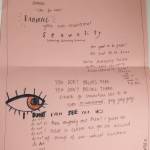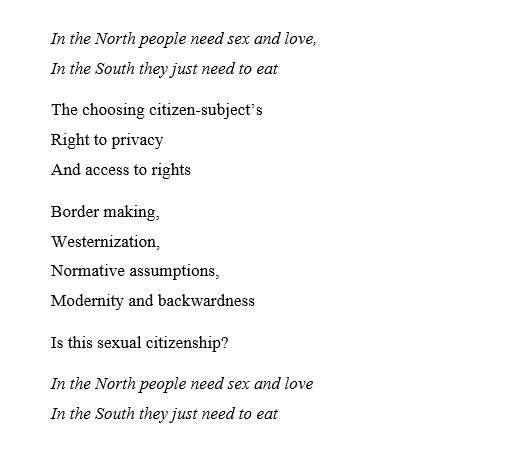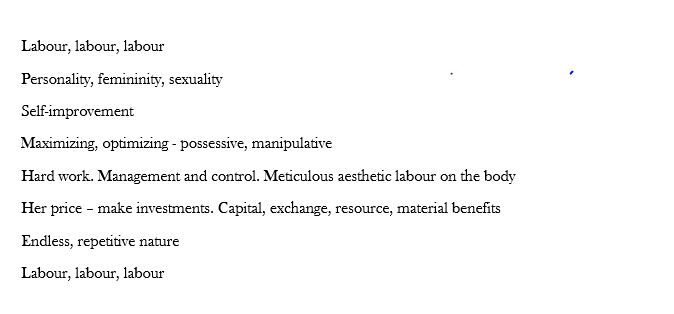One of the aims of the research project “Spaces of Justice Across the East-West Divide” is to develop collaboration across the borders between art and academia and to initiate new forms of contact between these fields. Integrating arts-based methods to university teaching offers one way of doing that.
In October 2016, the project organized an investigative art/research workshop at the University of Tampere. The theme of the workshop was “Exploring Politics of Gender and Sexuality across the Finnish-Russian Border”. The workshop was offered to students in the university’s Politics, Gender Studies and Russian Studies programmes and was taught by the members of the research project.
In addition to short lectures, the workshop consisted of art-making exercises. The students were encouraged to experiment with different modes of art-making and no prior artistic experience was required. Video, poster, and collage making along with a poetry assignment were intended to function as a space of cross-cultural and cross-sectoral knowledge production. The idea was to critically explore a variety of borders that relate not only to the politics of gender and sexuality – such as the East-West divide or the border between Finland and Russia – but also the boundary between academic research and artistic practice.
Writing poems was one of the arts-based methods that we used at the workshop. Arguably, poems are well suited to the task of producing knowledge across borders. Patricia Leavy (2009: 298—299) argues that poems can not only offer a “heightened glimpse into some aspects of social life” but also “interpret traditional ways of knowing and help us see differently”.
Yet, writing poems is not always easy. A poem “must be laser sharp, with each word weighed with intention. Words are chosen carefully, with attention to their weight, emotional tenor, sound and of course, meaning.” (Leavy 2009: 298). This is exactly how the poems written by the students at the workshop were. The students had been told to choose one of the academic articles in the required pre-readings for the course for a poem writing exercise. They were then given approximately an hour to write a poem. All the students wrote a poem or two, and some of them chose to continue to work on their poems before submitting them to their course portfolios.
In classroom discussions and learning diaries written after the workshop, several students brought up the fact that approaching academic texts through poetry writing enables one to take an active stance toward ideas presented in texts.
These student experiences resonate with Eeva Puumala’s idea that poetry, due to its openness, has a specific kind of epistemological potential. In her own work Puumala uses the term poetics in two ways: Poiesis stands for doing, making, and being active. Poetics means “critique, a practice of rewriting and articulating stories from some body’s position” (Puumala 2012, 53).
Perhaps, there is some poiesis and poetics in that the students mentioned that thanks to poetry writing and other arts-based teaching methods, they have found themselves returning to the topics that were taught and discussed at the workshop. If academic conventions may sometimes seem to hold imagination captive, the promise of poetic inquiry is that it may, as McCullis (2013, 83) suggests, open a “window into the heart of human experience”.
Written by Anni Kangas and Saara Särmä
Sources
Leavy, Patricia 2009. Method Meets Art: Arts-Based Research Practice. New York: Guilford Publications.
McCullis, Debbie 2013. “Poetic inquiry and multidisciplinary qualitative research”, Journal of Poetry Therapy, Vol. 26, No. 2, pp. 83–114.
Puumala, Eeva 2012. Corporeal Conjunctures No-w-here. Tampere: University of Tampere Press.




Comments